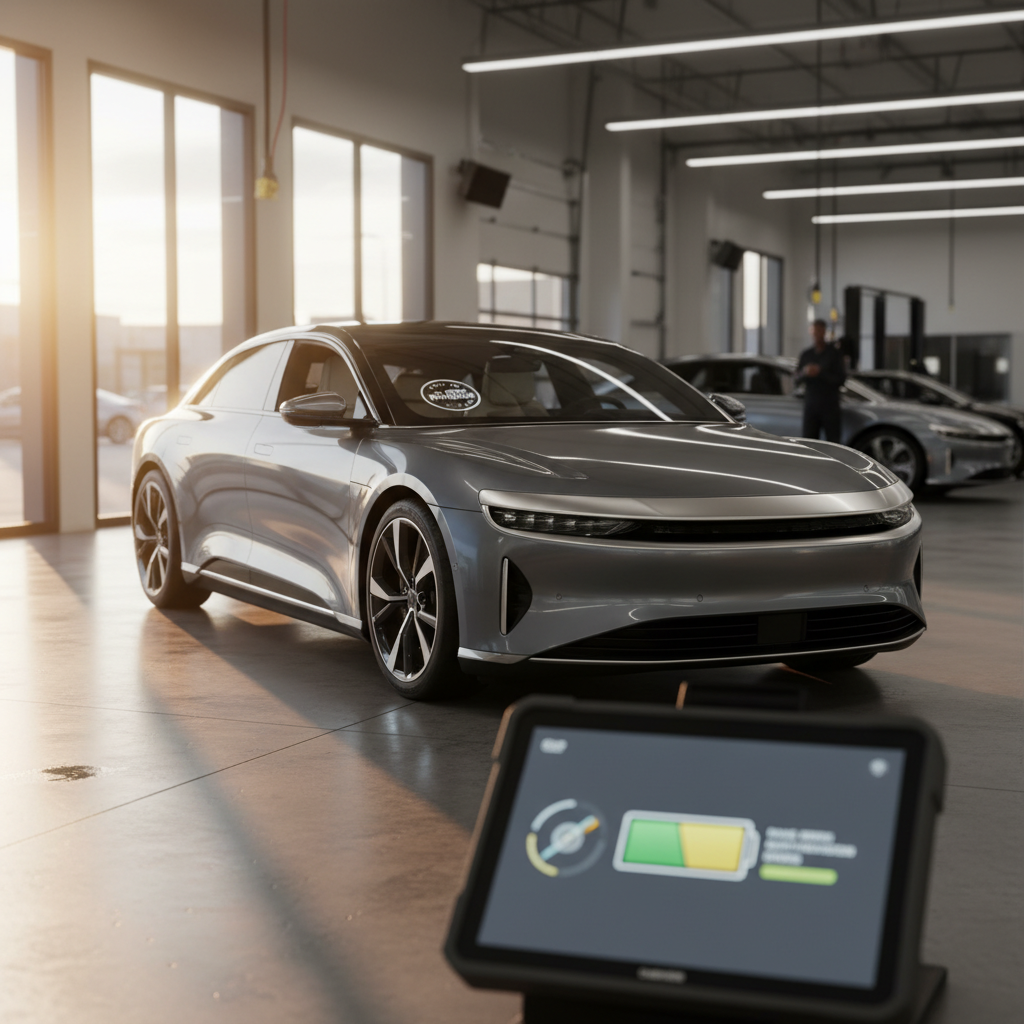Searches for a cheap Toyota for sale are exploding in 2025, and it’s not hard to see why. New-car prices are still high, interest rates bite, and Toyota has a reputation for building cars that will quietly run to 200,000 miles and beyond. The trick is separating a genuinely good cheap Toyota from one that’s simply cheap for a reason.
Quick note if you’re shopping EVs too
Why “cheap Toyota for sale” is so popular right now
For more than two decades, Toyota has been shorthand for low running costs and high reliability. A 2025 longevity study of 174 million vehicles found Toyota dominating the list of models most likely to reach 250,000 miles, which tells you why buyers are willing to pay a little more for a used Toyota and still call it a bargain. At the same time, used-car prices have finally cooled from their 2021–2022 peak, so older Corollas, Camrys and Priuses are drifting back into truly budget territory.
Cheap Toyota market snapshot for 2025
How cheap is “cheap”? 2025 Toyota price benchmarks
Before you can tell if a listing is a deal, you need a sense of real-world 2025 pricing. Here’s what national average used prices look like for popular Toyota models in the U.S. right now (rounded from large pricing marketplaces and guides):
Typical 2025 used Toyota asking prices (national averages)
Use this table as a ballpark reference. Actual prices depend on mileage, trim, condition, accident history, and your local market.
| Model & years | Typical price range | Notes |
|---|---|---|
| Corolla (2012–2015) | $9,000–$12,000 | Early-2010s cars under $10k are common; good mix of basic safety and low running costs. |
| Corolla (2016–2019) | $12,000–$16,000 | Later 11th-gen and early 12th-gen cars; better infotainment and safety tech. |
| Camry (2012–2014) | $9,500–$13,000 | High-volume midsize sedan; older examples sneak under $10k if mileage is higher. |
| Camry (2015–2018) | $13,000–$18,000 | Better crash scores and features; hybrids sit toward the upper end of the range. |
| Prius (2010–2013) | $6,500–$9,500 | One of the best ways to get a cheap Toyota hybrid with 50 mpg if the battery and EGR system check out. |
| RAV4 (2012–2015) | $11,000–$15,000 | Compact SUV pricing has stayed strong; truly cheap examples usually have high miles. |
| RAV4 Hybrid (2016–2018) | $17,000–$23,000 | Not “cheap” in sticker price, but low fuel and maintenance costs keep lifetime cost in check. |
If a listing is thousands below these ranges with similar mileage, assume there’s a story behind it, and investigate.
How to define your own price target
Best cheap Toyota models to target
Four of the best “cheap Toyota for sale” targets
You’re looking for low purchase price, low running costs, and proven reliability.
Toyota Corolla (2012–2018)
Why it’s a winner: The Corolla is the default answer for a cheap, reliable small car. It’s simple, efficient, and parts are everywhere.
- Real-world prices from around $9,000 for early-2010s models.
- Later 2016–2018 cars add better crash protection and tech.
- Easy to drive, cheap to insure, and great for city commuting.
Toyota Camry (2012–2017)
Why it’s a winner: If you want more space and power but still need a deal, a Camry is the logical step up from a Corolla.
- Older base trims can dip right around $10,000 for higher miles.
- Comfortable on the highway, strong safety record.
- Four-cylinder engines are durable and reasonably efficient.
Toyota Prius (2010–2013)
Why it’s a winner: When gas prices spike, cheap Priuses disappear first for a reason: 50+ mpg and taxi-cab durability.
- Well-kept cars commonly show 150k+ miles and still have life left.
- Check hybrid battery health and EGR system service history.
- Perfect for high-mile commuters and delivery drivers.
Toyota hybrids (Corolla & Camry Hybrid)
Why they’re worth stretching for: Asking prices aren’t always “cheap,” but lifetime fuel and maintenance costs are.
- Corolla Hybrid (2020+) and Camry Hybrid (2018+) deliver 44–52 mpg.
- Great choice if you drive 12,000–15,000 miles a year or more.
- Pair them with low-cost financing and you can beat many older gas cars on total cost of ownership.

Gas vs hybrid vs EV Toyotas on a budget
Gas-only Toyotas
- Pros: Lowest upfront prices, simplest to service at any independent shop, plenty of parts in salvage yards.
- Cons: Higher fuel bills, especially for stop‑and‑go commuters; older examples may lack modern active safety features.
- Best for: Drivers with modest annual mileage or tight upfront budgets who can’t stretch to a hybrid.
Toyota hybrids & EVs
- Pros: Huge fuel savings, especially on city routes; strong reliability record; often better-equipped trims.
- Cons: Higher purchase prices; you must pay attention to battery health and cooling system maintenance.
- Best for: High-mileage commuters, ride-hail and delivery drivers, or anyone planning to keep the car for 5–10 years.
If you’re considering a used EV or plug‑in hybrid, Recharged’s Recharged Score includes a verified battery-health report so you know exactly what you’re buying.
Don’t assume cheap fuel is forever
Where to actually find a cheap Toyota for sale
Typing “cheap Toyota for sale near me” into a search bar is only step one. Where you shop matters just as much as what you shop for. Each channel has different trade-offs in price, risk, and convenience.
Main places to shop for a cheap Toyota
Mix a couple of these sources for the clearest view of what’s a fair deal in your area.
Big listing sites
Think of sites that aggregate dealer and private listings.
- Huge selection and transparent price comparisons.
- Filter by price, mileage, accidents, and more.
- Look for price ranking tools that flag over‑ or under‑priced cars.
Franchise & independent dealers
Dealers charge more than private sellers but often include reconditioning, a basic warranty, and easier financing.
- Good fit if you want a one‑stop experience.
- Ask for inspection reports, service records, and reconditioning lists.
- Be ready to negotiate add‑ons and fees.
Private-party sellers
Private sales are where you sometimes find the truly cheap Toyotas, but also the riskiest ones.
- Often lower prices, especially if the seller just wants it gone.
- No built‑in warranty or comeback if something breaks.
- Always insist on a pre‑purchase inspection and a clear title.
Where Recharged fits in
Inspection checklist for a cheap Toyota
A cheap Toyota is only a deal if it isn’t hiding a four-figure repair. Use this checklist before you sign anything, no matter where you’re buying.
Cheap Toyota pre‑purchase checklist
1. Pull the full vehicle history report
Look for accidents with airbag deployment, salvage or rebuilt titles, flood damage, odometer rollbacks, or multiple “total loss” entries. A very cheap Toyota with a bad title is extremely hard to resell.
2. Scan for warning lights and dashboard messages
On startup the dash should light up, then everything except seatbelt and parking brake should go dark. Persistent check‑engine, ABS, or airbag lights are negotiation leverage at best, or a sign to walk away.
3. Check fluids, leaks, and basic maintenance
Oil that’s sludge‑dark, low coolant, or burnt‑smelling transmission fluid can hint at poor maintenance. On older Toyotas, ask specifically about spark plugs, coolant, brake fluid, and transmission service.
4. Inspect tires, brakes, and suspension
Uneven tire wear or pulling under braking can indicate alignment or suspension issues. Budget $700–$1,200 if it clearly needs tires and brakes right away, then factor that into your offer.
5. For hybrids, verify battery health
Hybrid batteries can last well past 150k miles, but not forever. Ask for any prior battery service documentation. With EVs and plug‑in hybrids, use a battery-health report like Recharged’s Recharged Score, which gives you a clear state-of-health percentage.
6. Always get a pre‑purchase inspection (PPI)
A trusted independent mechanic or hybrid specialist should inspect any cheap Toyota before you commit. A $150–$250 inspection can easily save you thousands.
Financing a cheap Toyota without overpaying
The phrase cheap Toyota for sale usually refers to sticker price, but the monthly payment and interest you pay over time are just as important. On a $12,000 purchase, the difference between a strong rate and a bad one can quietly erase all the savings you fought for on price.
Smart financing moves
- Get pre‑qualified first: Use an online lender, your credit union, or a platform like Recharged to see your rate range before talking numbers at a dealership.
- Shorter terms beat longer ones: A 36‑ or 48‑month loan usually costs less in total interest than a 72‑month loan, even if the payment is higher.
- Don’t finance junk fees: Gap, extended warranties, and add‑ons can make a cheap Toyota not so cheap. Only pay for products you understand and actually want.
How Recharged can help on EVs
If you’re cross‑shopping a cheap Toyota hybrid or EV, Recharged lets you pre‑qualify for financing with no impact to your credit. That gives you a clear ceiling before you ever step into a traditional showroom, and makes it easier to compare an efficient electrified Toyota against older gas-only cheap cars.
Rule of thumb for payments
Common mistakes when chasing the “cheapest” Toyota
- Focusing only on price and ignoring condition, history, and upcoming maintenance.
- Buying the absolute cheapest Toyota on the market without budgeting for a timing belt, brakes, or tires.
- Skipping a pre‑purchase inspection because you’re in a rush or the seller seems nice.
- Assuming every hybrid battery is “too expensive” to fix, and walking away from good hybrid deals.
- Letting monthly payment talk distract you from the total price and interest paid.
When to walk away, even if it’s cheap
FAQ: Cheap Toyota for sale
Frequently asked questions about finding a cheap Toyota
Bottom line: Cheap Toyota, smart purchase
A cheap Toyota for sale can be one of the most rational car buys you’ll ever make, if you treat it like a long-term financial decision rather than a snap bargain. Start with realistic price benchmarks, aim for proven models like the Corolla, Camry and Prius, and never skip the fundamentals: history report, thorough inspection, and disciplined financing.
If you’re also looking at electrified options, use those same principles when you shop with Recharged. You’ll get transparent pricing, a Recharged Score report on battery health, and EV‑savvy support from first click to delivery. Whether your next car wears a Toyota badge or a different logo, the goal is the same, spend less over the life of the vehicle, not just at the moment you spot a low price tag.



